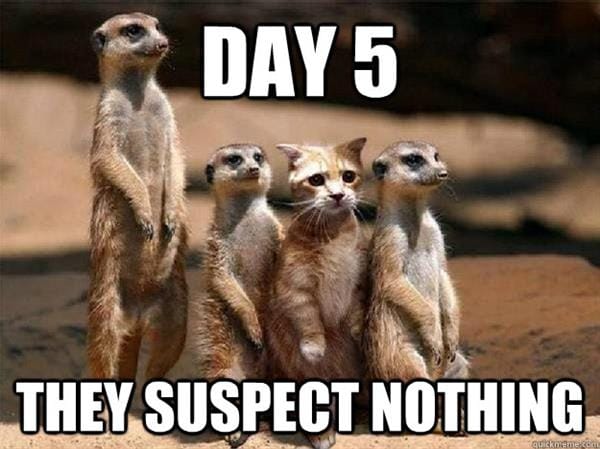We’ve all been there, changing the wording slightly, dressing up our previous roles, or increasing our salary, and maybe, just slightly pushed past that grey area of merely exaggerating our assets, and have started to straight up lie.
It’s not that serious, you say, no one really checks your CV, and it’s just a white lie. No, don’t get into that trap, lying through the job process might indeed land you that dream job, but don’t forget, once you’re there, you’ll be expected to do the job you said you were born to do, you might scrape through a month, but sooner or later, it’ll become obvious that you are so far out of your depth that you’re sinking.

The best thing to do, is be honest, take a junior role, and learn the business or industry you want to be in, and if all goes well, you can work your way upwards, either by climbing the ladder at your firm, or by hopping to other firms when better roles become available. You might think that you can’t waste time in a junior role, but far better to work upwards, than to lie your way to a higher rung, it’s a far bigger fall from the top, so start climbing from the bottom and you’ll find that it’s a safer more thorough and rewarding climb.
These days, it’s so much easier to spot when things don’t add up on a CV, if your LinkedIn tells a different story to the one on your CV, that’s going to flag up. If your reference reports that you weren’t actually the Manager, then it will look slightly odd, remember the majority of hiring managers will have a copy of your CV on the table at the interview, and will most probably have looked through your social media. So, think about what you’re writing. And don’t forget, if you lie on your CV it’s very easy to perform an immediate dismissal, just look at the scandal at Yahoo in 2012 when their CEO was let go for falsifying a degree, if that can happen with a CEO, then you and I best take heed.
So, here are some common, fabrications, that often appear on CV’s, if you’ve just written one in, then maybe think again before sending it any prospective employer.
- Exaggerating the dates of your previous employment – this is a common one, as people are often too worried about a month of unemployment here and there so prefer to stretch the dates, but remember one of the first things a reference confirms is when you worked there.
- Falsifying Qualifications earned – whether academic or professional, it seems so easy to just write it onto your CV, even to bump up your GCSE’s or A-Levels, well it’s also very easy to check with a quick call to the institution you’ve listed as receiving that qualification from.
- Inflating Job title and salary – as mentioned before, you might feel you did the job of a more senior position, or display your salary as a higher number to try and attain a higher salary, but it’s just so easy for references to show up, and the more lies you make the harder it is to keep them going.
- Making up a previous employer – I know, it really does happen, but just think how easy it is to see through this lie, and how awkward it would be when your prospective employer asks for a reference and is told they have no record of you.
- Bilingual or Multilingual ability – I know, how can you possibly think to get away with this? But it does happen, just imagine the interview when you are asked Hur mår du? and you start panicking as you had no idea they’d actually want you to prove that you could speak Swedish in Ikea… then you have to just smile and hope the embarrassment ends soon.
There are so many more fabrications, alterations and misrepresentations on CV’s it beggars belief, so before you pretend your driving license is clean, or use industry jargon that you saw listed on Wikipedia, just stop, and think. How would you feel if the door to that company was closed forever, when you could have landed the job anyway? Remember we can’t all be Mike Ross in Suits, and we there aren’t many Harvey Specters willing to take a chance on a fraud.

Be yourself, and sell the truth, and you’ll be happy as you won’t have to adapt and continue the lie throughout your career. And if you think you haven’t got enough for the role, then go for it anyway, as you, and you might be surprised. Remember we aren’t the only ones that are Inspired by People. If you can connect at the interview you may do better than you thought possible.